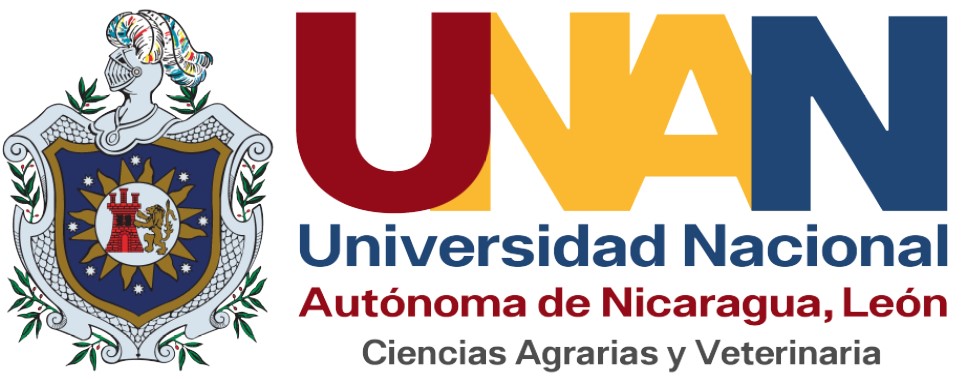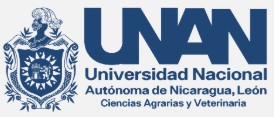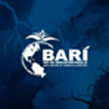Reflexiones para medir el impacto socio económico del bono productivo alimenticio
DOI:
https://doi.org/10.5377/ribcc.v3i6.5950Palabras clave:
Diseño metodológico, Investigación cualitativa, tipo de investigación explicativa, Método instrumentos, MuestraResumen
El presente estudio es una revisión del diseño metodológico para medir el impacto socio económico del programa del Bono Productivo. Así, cuando se estudia una metodología lo primero que se encuentra el investigador es la definición del tipo de investigación que desea realizar. La escogencia del tipo de investigación determinará los pasos a seguir del estudio, sus técnicas y métodos que puedan emplear en el mismo. En general determina todo el enfoque de la investigación influyendo en instrumentos, y hasta la manera de cómo se analiza los datos recaudados para medir un impacto como el del Bono Productivo. Así, el punto de los tipos de investigación en una investigación va a constituir un paso importante en la metodología, pues este va a determinar el enfoque del mismo. Este puede dividirse en dos tipos principales de Campo o de Laboratorio. Estudios Exploratorios: También conocido como estudio piloto, son aquellos que se investigan por primera vez o son estudios muy pocos investigados. También se emplean para identificar una problemática. Estudios: Describen los hechos como son observados. Estudios Correlaciónales: Estudian las relaciones entre variables dependientes independientes, ósea se estudia la correlación entre dos variables. Estudios Explicativos: Este tipo de estudio busca el por qué de los hechos, estableciendo relaciones de causa- efecto. Pero en este caso estaremos abordando todos los apartados que conllevan el diseño metodológico de la investigación, cualitativa y los aspectos que a ella se refieren.
Descargas
Métricas
Citas
Atkinson, H. C., & Begg, E. J. (1988). The binding of drugs to major human milk whey proteins. British journal of clinical pharmacology, 26(1), 107-109.
https://doi.org/10.1111/j.1365-2125.1988.tb03373.x
Cajide Val, J. (1992). El desarrollo intelectual en matemáticas: perspectivas desde una experimentación. Educadores: Revista de la Federación Española de Religiosos de Enseñanza, 34(161), 67-73.
CABALLO, V. E. (1993). Manual de evaluación y entrenamiento de las habilidades sociales.
Guba, E. G., & Lincoln, Y. S. (1994). Competing paradigms in qualitative research. Handbook of qualitative research, 2(163-194), 105.
Hernández, R., Fernández, C. B., & Baptista, L. P.(2003). Metodología de la Investigación, (Vol. 3).
Hernández Sampieri, R., Fernández Collado, C., & Baptista Lucio, P. (1991). Metodología de la Investigación. 2da. Edición. Editorial Mc Graw Hill.
Hernández, R., & Fernández, C. B. (2003) Metodología de la investigación. Editorial Mc Graw Hill. México.
Hernández, R., Fernández, C., & Baptista, P. (2006). Metodología de la investigación.
Guba, E. G. (1990). The paradigm dialog. In Alternative paradigms conference, mar, 1989, indiana u, school of education, san francisco, ca, us. Sage Publications, Inc.
Jakobson, R. (1963). Essais de linguistique générale.
Kuhn, T. S. (1977). The Essential Tension. Selected Studies in Scientific Tradition and Change. Chicago: University of Chicago Press.
https://doi.org/10.7208/chicago/9780226217239.001.0001
Lincoln, Y., & Guba, E. (1985). Naturalistic Inquiry Vol. 75 Sage. Beverly Hills, CA.
Méndez, I., Namihira, D., Moreno, L., & Sosa, C. (2001). El protocolo de investigación. México DF: Trillas.
Padrón, J. (1998). La estructura de los procesos de investigación. Revista educación y ciencias humanas, 9(17), 33-45.
Paz, M. (2003). Investigación cualitativa en educación. Fundamentos y tradiciones. Editorial Mcgraw Hill. México DF.
Pita Fernández, S., & Pértegas Díaz, S. (2002). Investigación cuantitativa y cualitativa. Cad aten primaria, 9(76-8).
Pérez Andrés, C. (2000). ¿ Deben estar las técnicas de consenso incluidas entre las técnicas de investigación cualitativa?. Revista Española de Salud Pública, 74(4), 00-00.
https://doi.org/10.1590/S1135-57272000000400001
Rodríguez, J. M. (2011). Métodos de investigación cualitativa. Revista Silogismo, 4(8), 11-11.
Sampieri, R. H., Collado, C. F., Lucio, P. B., & Pérez, M. D. L. (1998). Metodología de la investigación (Vol. 1). McGraw-Hill.
Valles, M. S. (2000). Técnicas cualitativas de investigación social. Madrid: Sintesis Editorial.
Publicado
Cómo citar
Número
Sección
Licencia
Derechos de autor 2018 Revista Iberoamericana de Bioeconomía y Cambio Climático

Esta obra está bajo una licencia internacional Creative Commons Atribución-NoComercial-CompartirIgual 4.0.
Copyright © 2025 Rev. iberoam. bioecon. cambio clim. Universidad Nacional Autónoma de Nicaragua León (UNAN-León), Area de Conocimiento de Ciencias Agrarias y Veterinarias/ Area Especifica de Agroecología y agronegocios /Centro de Investigación Ciencias Agrarias y Veterinarias. Dirección Académica. Departamento de Investigaçión. Unidad de publicaciones y eventos cientificos.












 EDITORIAL
EDITORIAL  e-ISSN
e-ISSN


 COPYRIGHT
COPYRIGHT  Este trabajo está licenciado bajo una Licencia Internacional
Este trabajo está licenciado bajo una Licencia Internacional 












